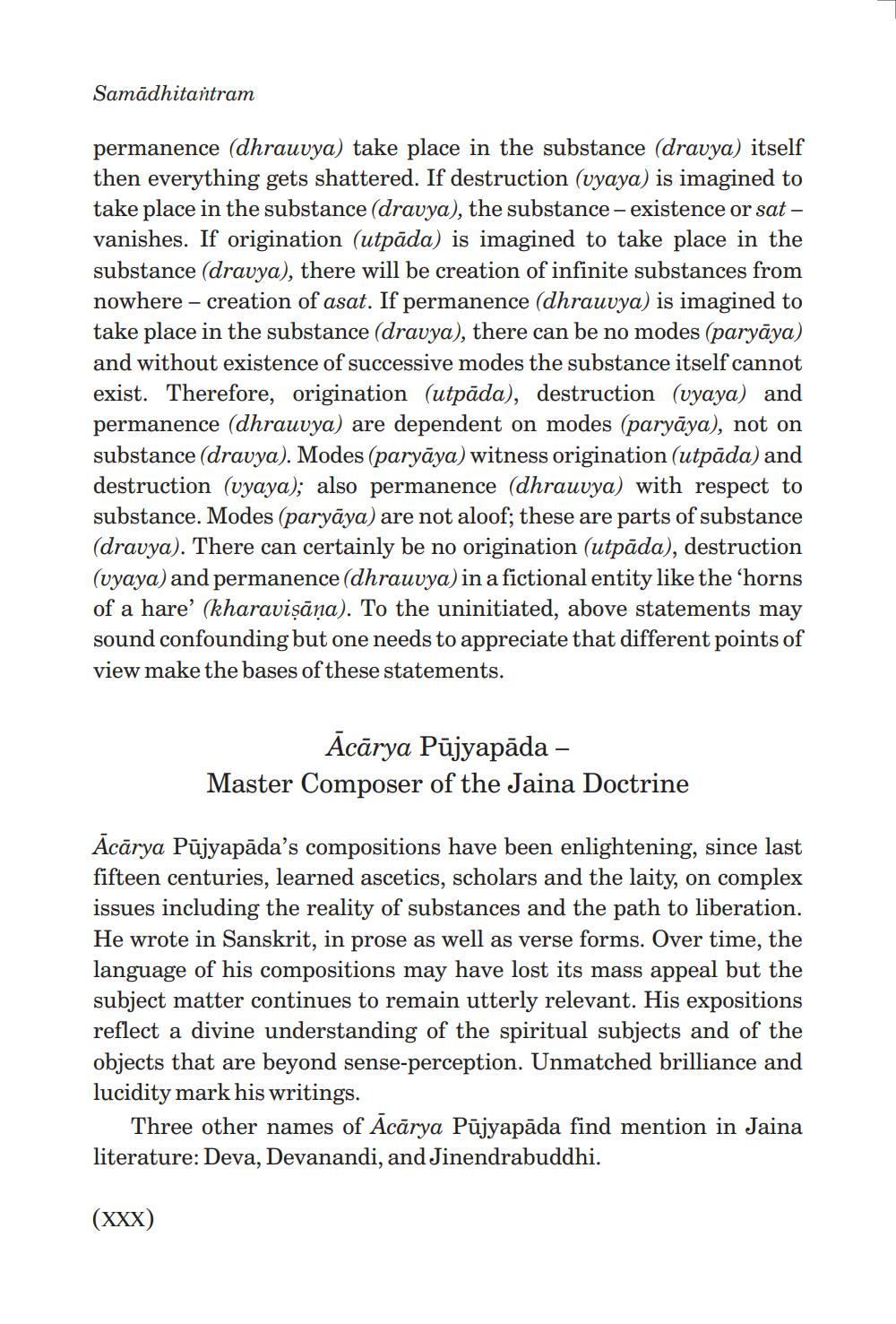________________
Samadhitantram
-
permanence (dhrauvya) take place in the substance (dravya) itself then everything gets shattered. If destruction (vyaya) is imagined to take place in the substance (dravya), the substance - existence or sat - vanishes. If origination (utpada) is imagined to take place in the substance (dravya), there will be creation of infinite substances from nowhere – creation of asat. If permanence (dhrauvya) is imagined to take place in the substance (dravya), there can be no modes (paryāya) and without existence of successive modes the substance itself cannot exist. Therefore, origination (utpada), destruction (vyaya) and permanence (dhrauvya) are dependent on modes (paryaya), not on substance (dravya). Modes (paryaya) witness origination (utpāda) and destruction (vyaya); also permanence (dhrauvya) with respect to substance. Modes (paryaya) are not aloof; these are parts of substance (dravya). There can certainly be no origination (utpada), destruction (vyaya) and permanence (dhrauvya) in a fictional entity like the 'horns of a hare' (kharaviṣāņa). To the uninitiated, above statements may sound confounding but one needs to appreciate that different points of view make the bases of these statements.
Acārya Pujyapāda –
Master Composer of the Jaina Doctrine
Acārya Pujyapada's compositions have been enlightening, since last fifteen centuries, learned ascetics, scholars and the laity, on complex issues including the reality of substances and the path to liberation. He wrote in Sanskrit, in prose as well as verse forms. Over time, the language of his compositions may have lost its mass appeal but the subject matter continues to remain utterly relevant. His expositions reflect a divine understanding of the spiritual subjects and of the objects that are beyond sense-perception. Unmatched brilliance and lucidity mark his writings.
Three other names of Acārya Pujyapāda find mention in Jaina literature: Deva, Devanandi, and Jinendrabuddhi.
(XXX)




